Early Career Investigators

Katherine Chiappinelli, PhD

Katherine Chiappinelli, PhD Website
Assistant Professor of Microbiology, Immunology, and Tropical Medicine, George Washington University School of Medicine
Education: PhD, Washington University in St. Louis School of Medicine; Postdoctoral fellowship, Johns Hopkins University
Research Description
My research focuses on how epigenetic therapies can be used against cancers, specifically in the context of arming the host immune system to fight cancer cells. We study the epigenetic changes in cancer and how epigenetic drugs can reverse these, specifically focusing on noncoding regions of the genome and the tumor cell immune response.
Elizabeth Christie, PhD
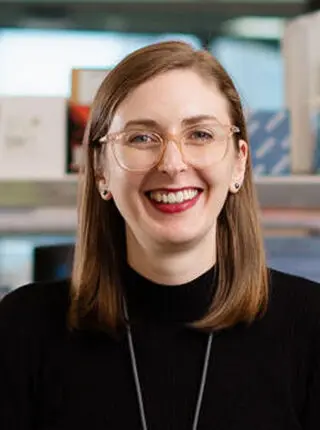
Elizabeth Christie, PhD Website
Group Leader in the Cancer Evolution and Metastasis Program at the Peter MacCallum Cancer Centre
Education: PhD, Ludwig Institute for Cancer Research and the University of Melbourne
Postdoctoral Training: Peter MacCallum Cancer, Victoria, Australia
Research description:
Acquired drug resistance, when a cancer initially responds well to treatment but upon disease recurrence it becomes progressively more resistant to treatment, is a major challenge that continues to lead to poor outcomes for individuals with high grade serous ovarian cancer (HGSOC).
The primary focus of my research program is to fully catalog the mechanisms of acquired drug resistance that arise in HGSOC by applying multi-omics to patient samples. We also seek to understand metastatic spread, develop blood- and tumor-based biomarkers of clinical response, and perform preclinical studies to identify novel treatment strategies for ovarian cancer.
Marion Curtis, PhD
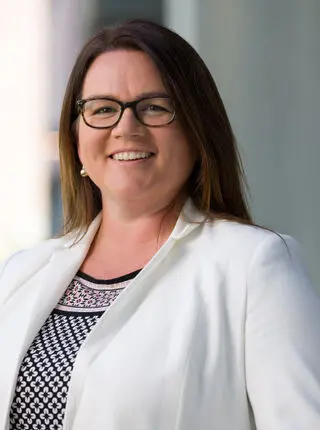
Assistant Professor of Immunology, Departments of Immunology and Cancer Biology, College of Medicine and Science, Mayo Clinic
Education: Ph.D., Cancer Biology, Biological Sciences Division, University of Chicago
Postdoctoral Training: Department of Obstetrics and Gynecology, University of Chicago
Research Description:
The long term goal of our lab is to improve the understanding of the relationship between ovarian cancer and the immune system, which will enable the development of new therapies to improve outcomes for women with this deadly disease. Our current research seeks to exploit the DNA damage repair deficiencies present in ovarian tumors in order to activate an effective anti-tumor immune response. We use a combination of cellular and mouse models of ovarian cancer, as well as, a large biobank of primary human samples to reach our goal. Our work is anticipated to have an enormous impact for women battling ovarian cancer, which currently lack truly effective treatment options following disease recurrence.
Denarda Dangaj, PhD

Lecturer at the University of Lausanne and Group leader in the "Human Integrated Tumor Immunology Discovery Engine” or Hi-TIDE
Lausanne Branch of the Ludwig Institute for Cancer Research, affiliated with the Department of Oncology of Centre Hospitalier Universitaire Vaudois (CHUV).
Education
Undergraduate degree : Democritus University of Thrace, Greece
Graduate studies (PhD) : Democritus University of Thrace, Greece, and University of Pennsylvania, USA
Postdoctoral studies: Ludwig Institute for Cancer Research, University of Lausanne, Switzerland
Research Description
My scientific group studies deeply the T cell responses and the tumor microenvironment of ovarian cancers and other solid tumors. Our research interests are to elucidate the evolution of ovarian cancer and its microenvironment with the overarching goal to improve immunotherapy.
Other research objectives are to gain a deep understanding of the molecular states of human TILs (tumor infiltrating lymphocytes) and the tumor microenvironment at stages of tumor escape or tumor rejection using systems immunology approaches. My lab studies tumor and stroma-driven exclusion mechanisms of TILs and also aims to understand how genomic alterations (ie homologous recombination repair deficiency, HRD) and tumor heterogeneity regulate TIL inflammation status of tumors.
We employ orthogonal approaches to discovery, including single cell proteomic, transcriptional, and epigenetic interrogation, advanced high dimensional microscopy, topologically referenced transcriptional profiling, 3D tumor organoids and histocultures, mouse models and computational tools.
Shailendra K Dwivedi, PhD

Shailendra K Dwivedi, PhD Website
Assistant Professor
Dept. of OB/GYN (Gynecologic Oncology)
University of Oklahoma Health Science Center.
Oklahoma City, OK 73104
Education: Ph.D.: Biological Science, Jawaharlal Nehru University, New Delhi, India and CSIR-Central Drug Research Institute, Lucknow, India.
Postdoctoral Training: Stephenson Cancer Center, University of Oklahoma Health Sciences Center, Oklahoma City, Oklahoma
Research Description:
My research focuses on investigating the molecular signaling involved in ovarian cancer progression and discovering innovative therapeutic strategies. Specifically, I am exploring the significance of non-coding RNA in ovarian cancer and investigating its potential as a regulatory and therapeutic tool in cancer progression, drug resistance, metastasis, and the tumor microenvironment. To gain insights into the molecular pathways governed by non-coding RNAs, we use high-grade serous ovarian cancer cell lines grown as monolayer or anchorage-independent spheroids, patient-derived primary tumor cells, and ovarian cancer animal models. Our ultimate goal is to translate our research findings to improve the therapeutic outcomes of ovarian cancer patients.
Alexandre Gaspar-Maia, PhD
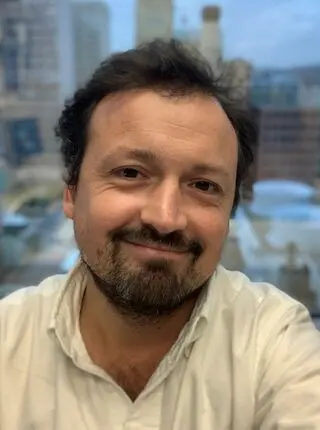
Alexandre Gaspar-Maia, PhD Website
Assistant Professor of Pharmacology, Laboratory Medicine and Pathology, Mayo Clinic
Education: PhD, University of California San Francisco/ Universidade de Coimbra (Portugal); Postdoctoral fellowship, Icahn School of Medicine at Mount Sinai NY
Research Description:
My group has been focusing on various aspects of transcription and enhancer regulation with implications in cellular heterogeneity, in particular in cancer stem cell states that lead to drug resistance. The goal is to use epigenomic profiling to define transcriptional dependencies and better understand cancer programs associated with malignancy, metastasis and drug sensitivity. To achieve this goal we use 3 complementary avenues: 1) Technology development: by adapting the most recent advances in sequencing technologies to a variety of model systems (3D organoids, PDXs and liquid biopsy) we aim to address tumor heterogeneity and epigenomic profiling in small populations of cells; 2) Bioinformatic analysis: with a special interest in incorporating different sequencing platforms to identify epigenomic patterns, we focus on extracting the most information from RNA-seq, HiChIP, HiC, ATAC-seq and single cell ATAC-seq/RNA-seq data. 3) Mechanistic Studies: using CRISPR/Cas9 based technologies and co-culturing systems to address cellular heterogeneity, we aim to target novel transcription factor candidates and non-coding elements to functionally validate their roles in cancer stem cell states.
Alexander Melamed, MD, MPH
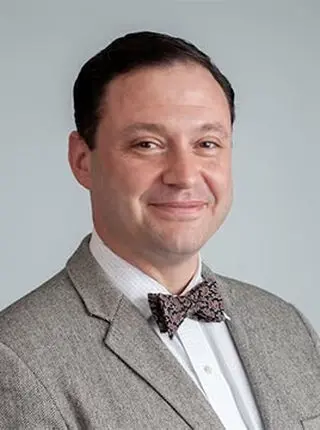
Alexander Melamed, MD, MPH Website
Associate Professor of Obstetrics, Gynecology and Reproductive Biology
Harvard Medical School
Ob/ Gyn Residency: Brigham and Women's Hospital and Massachusetts General Hospital
Gynecologic Oncology Fellowship: Massachusetts General Hospital
Research Description
I am a health services and comparative effectiveness researcher and a practicing gynecologic oncologist at Massachusetts General Hospital. My research focuses on evaluating the effectiveness of healthcare services, with a focus on the role of surgery in improving outcomes among women with gynecologic cancer. To this end, I have taken a broad interdisciplinary approach incorporating translational, observational, and interventional clinical research. Much of my work seeks to estimate causal association in observational data. To that end, I have developed expertise in applying advanced analytic techniques to questions with clinical and policy significance in cancer care. My work has been published in high-impact medical journals including the New England Journal of Medicine, JAMA, and BMJ.
Melissa A. Merritt, PhD
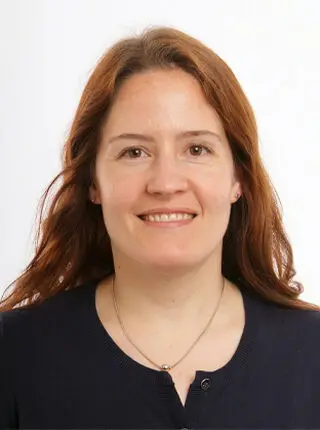
Melissa A. Merritt, PhD Website
Senior Research Fellow, The Daffodil Centre
Stream Co-Leader, Ovarian Cancer
Faculty of Medicine and Health, The University of Sydney
Education: PhD, University of Queensland, Brisbane, Queensland, Australia
Postdoctoral fellowships: Brigham and Women’s Hospital/Harvard School of Public Health, Boston, MA; Imperial College London, United Kingdom
Research Description:
My research program integrates molecular epidemiology, biomarkers for disease risk and progression, and disparities research using data from epidemiological cohort studies. My long term goal is to assist to develop better strategies for ovarian cancer prevention and to identify targets for pharmacologic and lifestyle interventions to improve outcomes for ovarian cancer patients. Using the exemplary resources available in the Ovarian Cancer Cohort Consortium (OC3), one of my specific goals is to study how pre-diagnosis and post-diagnosis aspirin and non-aspirin non-steroidal anti-inflammatory drug (NSAID) use may influence survival among ovarian cancer patients in the context of patient characteristics and tumor immune marker profiles.
Yeku Oladapo, MD, PhD

Instructor, Medicine, Harvard Medical School, Clinical Assistant Attending, Medicine, Massachusetts General Hospital
Education: MD, PhD, Stony Brook University School of Medicine
Medical Oncology Fellowship, Memorial Sloan Kettering Cancer Center
Research Description
I am characterizing the suppressive tumor microenvironment and evaluating strategies to improve the efficacy of novel immunotherapeutic approaches for the management of gynecologic malignancies. This includes immune checkpoint inhibitors, antibody-drug conjugates, bispecific T-cell engager therapy, and adoptive cellular therapy, including CAR-T cells.
Achuth Padmanabhan, PhD
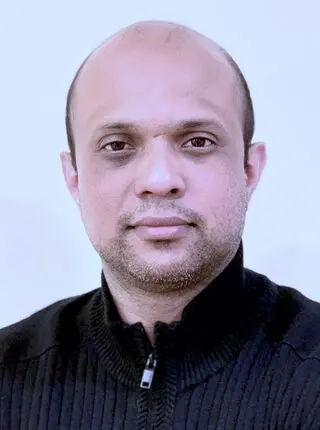
Achuth Padmanabhan, PhD Website
Assistant Professor, UMBC, University of Maryland, Baltimore, MD
Assistant Professor, Department of Biological Sciences, University of Maryland Baltimore County;
Member, University of Maryland Marlene and Stewart Greenbaum Comprehensive Cancer Center.
Education: Ph.D., Biological Sciences, University of Maryland Baltimore County
Postdoctoral Training: Department of Molecular Biophysics and Biochemistry, Yale University
Department of Molecular and Cellular Biology, Baylor College of Medicine
Research Description:
The long-term goal of my lab is to identify factors that drive ovarian cancer progression and metastasis and develop clinically translatable strategies to target them. We are particularly interested in understanding the dynamic interaction between cancer cell intrinsic and extrinsic factors and their impact on tumor progression and therapeutic response.
Naoko Sasamoto, MD, MPH
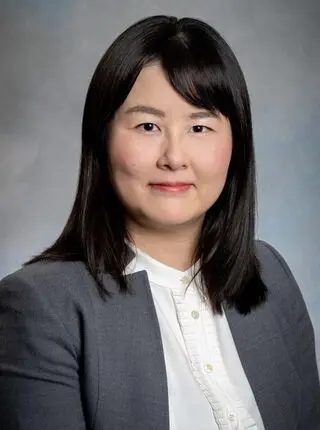
Naoko Sasamoto, MD, MPH Website
Instructor, Department of Obstetrics, Gynecology, and Reproductive Biology
Brigham and Women’s Hospital and Harvard Medical School
Education: MD, Osaka University, Osaka, Japan
Postdoctoral Training: Brigham and Women’s Hospital, Boston, MA
Research Description:
My research interest focuses on discovery of early detection biomarkers to improve clinical outcomes of women with ovarian cancer by detecting ovarian cancer at earlier stages and identifying novel biologic pathways related to early stage disease and disease progression which could inform development of novel prevention strategies or therapeutics. The primary objective of my current research is to discover novel biomarkers for early detection of ovarian cancer using a unique study with blood samples drawn one to seven years prior to diagnosis of late stage ovarian cancer and apply the cutting-edge technology which can simultaneously measure more than a thousand proteins using small amount of blood. Results from this study will lead to discovery of novel ovarian cancer screening biomarkers targeted to women with average risk, which will have great impact on improving ovarian cancer survival.
Rinda T. Soong, MD, PhD
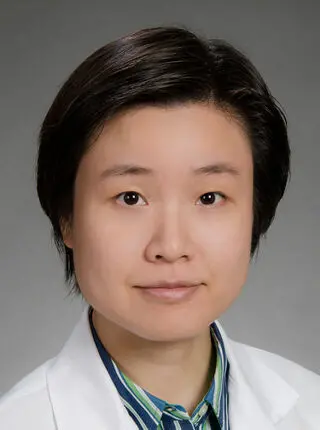
Rinda T. Soong, MD, PhD Website
Assistant Professor, Department of Pathology, University of Pittsburgh School of Medicine
Education: MD, Johns Hopkins University School of Medicine
PhD and MPH, Johns Hopkins Bloomberg School of Public Health
Pathology residency and fellowship: Brigham and Women’s Hospital, Harvard Medical School
Research description:
The long-term goal of my research program is to identify factors that facilitate the initiation and progression of ovarian high grade serous carcinoma in relation to the immune microenvironment and host epidemiologic profiles. Our work interrogates human tissue, cell lines, and mouse models to examine the evolution of tumor precursors into malignancy, as well as the mechanisms underlying the heterogeneity and progression of carcinoma with the ultimate aims to uncover early detection biomarkers and therapeutic targets.
Priyanka Verma, PhD
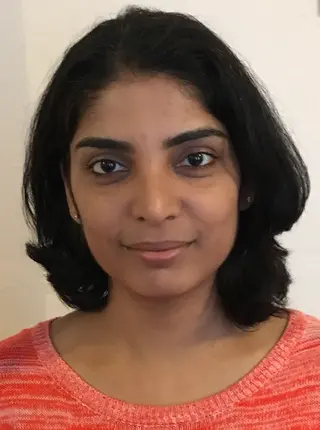
Assistant Professor, Siteman Cancer Center, Washington University School of Medicine, St. Louis, MO
Assistant Professor, Siteman Cancer Center, Washington University School of Medicine, St. Louis, MO
Education: Ph.D., Biochemistry, National Institute of Immunology, New Delhi, India
Postdoc: Department of Cancer Biology, University of Pennsylvania School of Medicine, Philadelphia, PA
Research Description
The overarching goal of the research in my lab is to understand how alterations in DNA replication and repair pathways impact etiology and chemotherapeutic responses in high-grade serous ovarian carcinoma. Our work integrates several molecular, cellular and functional genomic approaches to translate fundamental mechanistic discoveries into clinically impactful results.
Nan Zhang, PhD
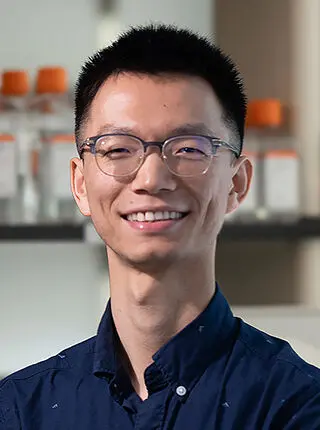
Assistant Professor, Immunology, Microenvironment and Metastasis Program, Ellen and Ronald Caplan Cancer Center
Education: PhD, Biochemistry and Molecular Biology, University of Oklahoma Health Sciences Center
Research description:
The Zhang lab focuses on the role of myeloid cells, including neutrophils and macrophages, in metastatic ovarian cancer. The goal is to find novel myeloid cell-based immunotherapies to treat or cure ovarian cancer in combination with immune checkpoint therapies or chemotherapy. Currently, we focus on treating metastatic ovarian cancer by activating myeloid cells using clinically relevant syngeneic mouse models and humanized mouse models. We use genetic mouse models, flow cytometry, ELISA, multiple types of fluorescence imaging (including multiphoton intravital imaging), single-cell RNA sequencing, spatial transcriptomics, proteomics, metabolomics, bioinformatics, and patient samples.
Full List of Mentors and Mentees:
| Mentor: Yeku Oladapo Mentees: David Spriggs and Ursula Matulonis |
Mentor: Shailendra Kumar Dhar Dwivedi Mentees: Priyabrata Mukherjee, Resham Bhattacharya and Anil K. Sood |
| Mentor: Katherine Chiappinelli Mentees: Daniel Powell and Catherine Bollard |
Mentor: Rachel Vogel Mentees: Melissa Geller and Heather Nelson |
| Mentor: Rinda Thing Soong Mentees: Elizabeth Swisher and Ronald Buckanovich |
Mentor: Achuth Padmanabha Mentees: le-Ming Shih and Charles Bieberich |
| Mentor: Priyanka Verma Mentee: Dineo Khabele |
Mentor: Denarda Dangaj Mentees: Jose Conejo-Garcia and George Coukos |
| Mentor: Melissa A. Merrit Mentees: Shelley Tworoger and Anne Cust |
Mentor: Jogender Tushir-Singh Mentee: Sharon Stack |
| Mentor: Alexander Melamed Mentees: Robert Coleman and Cesar Castro |
Mentor: Naoko Sasamoto Mentees: Kathryn Terry and John Quakenbush |
| Mentor: Marion Curtis Mentees: Scott Kaufmann and Diane Jelinek |
Mentor: Salvatore Condello Mentees: Daniela Matei and Kenneth Nephew |
| Mentor: Alexandre Gaspar-Maia Mentees: Fergus Couch and John Weroha |
Mentor: Rugang Zhang Mentees: Nan Zhang |
| Mentor: David Bowtell Mentees: Elizabeth Christie |
Mentor: Panagiotis Konstantinopoulos Mentees: Rebecca Porter |
| Mentor: Benjamin Bitler Mentees: Lindsay Brubaker |
|

